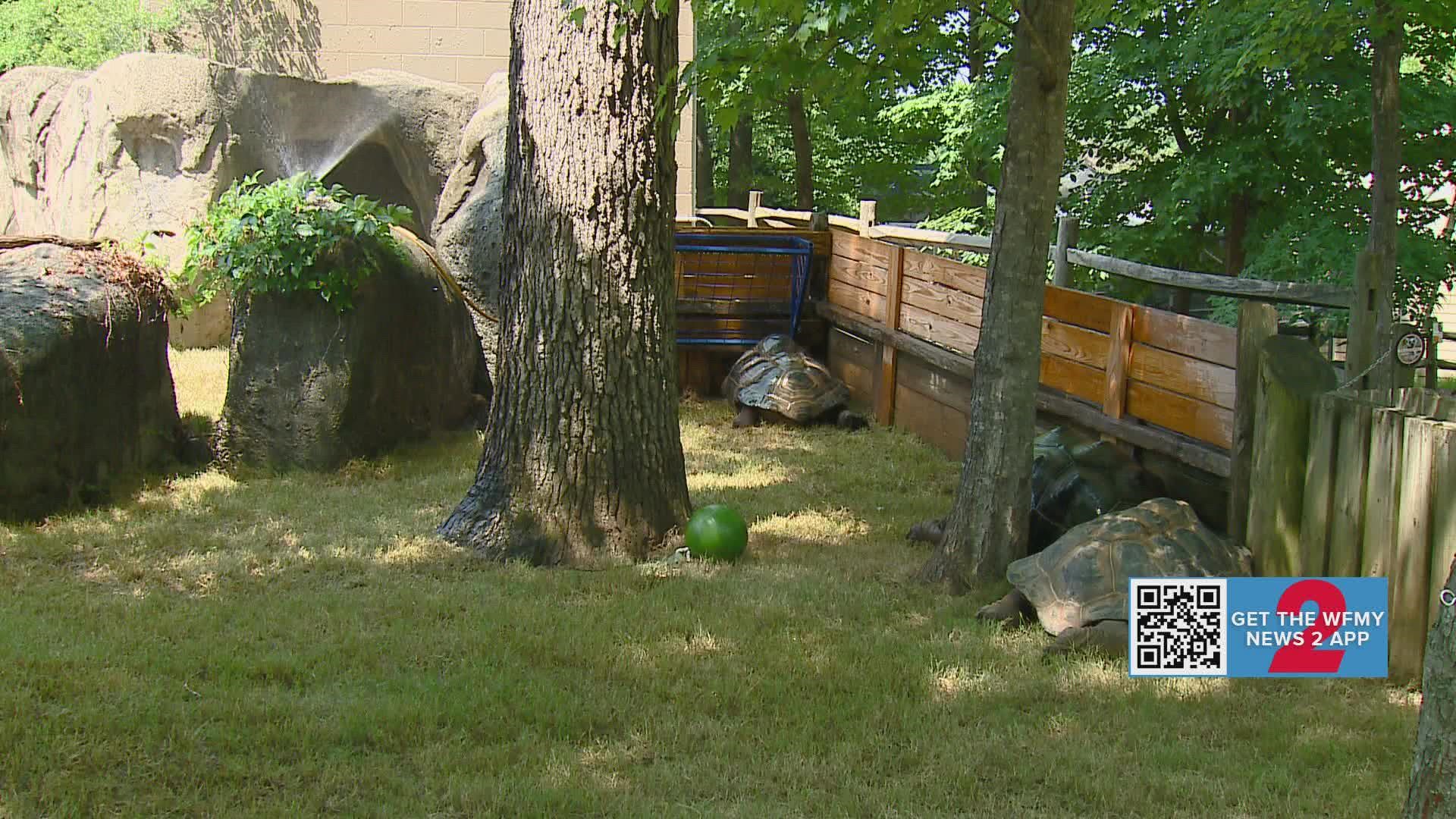GREENSBORO, N.C. — The Greensboro Science Center is getting creative to keep animals cool in the extreme heat.
With Summer almost in full swing and the triad experiencing a heat wave animal keepers at the science center have been monitoring animals. Officials said it's very important that animals have a good amount of water, and shade to stay cool.
"We do a lot of different things because obviously, it's sweltering out here," said Greensboro Science Center Veterinarian, Dr. Sam Young. "Those include providing large pools of water for them to play in, sprinkles systems, we just recently added a mister system for Kookaburra birds and the Tropical Hornbills."
Young said the science center works hard to choose species that can handle North Carolina's weather. One species that don't adapt well are the Red Pandas. Officials said finding the right animals for North Carolina is a big part of how they decide what the science center showcases.
On hot days you will be able to find the Kookaburra birds in their display with misters. Meanwhile, the tortoises spend their time sitting under the sprinklers getting wet and the flamingos relax at the pond. Since the red pandas don't adapt well they get to chill inside their habitat with the A/C when it gets hot outside.
"We have established temperature ranges for all the species and they are different depending on the species so say Red Pandas, for example, they get access to their indoor air condition space at 65 degrees cause they are so not tolerant to it," said Dr. Young. "Things like the Tropical Hornbills may be significantly higher."
The science center also likes to feed animals ice treats too. The tigers will get blood-flavored ice cubes. Other animals will typically get things like frozen chunks of fish, fruit, or vegetables depending on their species. Dr. Young said in the winter they go through the same process of accommodating animals so they're warm, it's a part of the monitor checks they do.
"Our keeper staff is all over these guys they are checking on them multiple times a day and if they see things such as open-mouth breathing or maybe a depressed attitude or something like that we can take action to move the species and make them more comfortable." Dr. Young said. "The biggest things are the shade, providing water for them at all times, plenty of water sources and cool water sources, and making sure everybody has got those temperature requirements that we are sticking to."
The Greensboro Science Center said the best time to see the animals is in the morning when they first open. It's open from 9:00 A.M. - 5:00 P.M. all year long. Science Center members can get in for free, otherwise, general admission ranges from $19.50 for adults to free for children 2 years old or younger.

